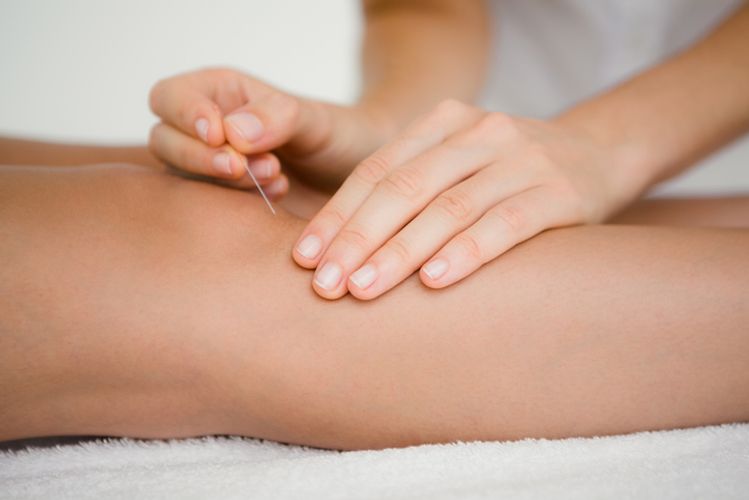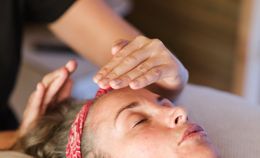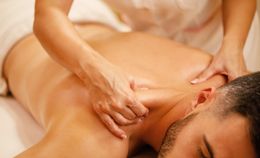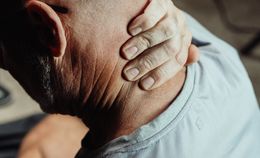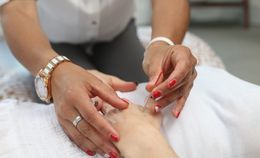Common causes of knee pain
The most common cause of chronic knee pain is osteoarthritis, when cartilage that cushions the knee joint wears down over time, causing stiffness and pain. Other types of arthritis can cause knee pain as well.
Injuries such as iliotibial band syndrome, a dislocated knee cap, fractures, and a torn meniscus can also cause knee pain. Injuries and pain in other parts of the body can cause someone to alter their gait in a way that causes knee pain to develop. Patellar tendonitis and knee bursitis both cause pain and inflammation in the knee.
Certain factors put people at greater risk for knee pain. These include certain sports and work activities that can lead to acute or overuse injuries. Age and obesity also put excess pressure on joints, weakening the surrounding muscles.
How acupuncture works for knee pain
Acupuncture is one of the major healing arts within Traditional Chinese Medicine, which understands health conditions as related to weak or imbalanced energy flows, or qi.
When a person is healthy, their qi flows in a strong and balanced fashion and their system is very resilient, able to heal itself effectively. However, physical or psychological trauma or stress can sometimes cause the flow of vital qi throughout and surrounding the body to become weak, blocked, or imbalanced.
Acupuncture treatment works through the precise insertion of needles at relevant points along the body's meridians, or energy pathways, to stimulate stronger, healthier energy flows. The acupuncturist thereby helps restore balance to qi and supports the body's natural healing process. Symptoms are reduced with regular treatment and the whole system's resilience and capacity for self-healing is strengthened.
Scientific research supports the efficacy of acupuncture treatment for a variety of health conditions and cites additional reasons for its effectiveness. These include impacts on circulation such as increased blood flow, the stimulation of the body to release endorphins and other natural substances that aid in pain relief, and changes in the brain that may help alleviate pain and support healing. Some medical researchers believe acupuncture may stimulate the immune system as well.
The physiological impacts of acupuncture treatment are still being studied, but acupuncture's efficacy is well-documented in clinical studies.
What research says about acupuncture for knee pain
There are many studies documenting acupuncture's efficacy in supporting overall health and wellness as well as this ancient healing art's power to boost healing in patients suffering from a wide range of health conditions.
Most scientific research on acupuncture's effectiveness for knee pain focuses on osteoarthritis sufferers. A selection of the scientific literature on patients with osteoarthritis of the knee treated with acupuncture reveals similar results to the overall medical research literature on acupuncture's effectiveness. Acupuncture is an effective treatment option with fewer side effects and risks than more invasive conventional treatments.
Below are detailed accounts of some of the remarkable findings.
Acupuncture may be more effective than physical therapy
Two studies conducted by different groups of Chinese researchers, one published in 20131 and one in 20162, compared the efficacy of physical therapy and acupuncture for painful osteoarthritis of the knee. Both found that acupuncture treatment produced better outcomes than physical therapy, and that acupuncture likely stimulated cartilage repair.
Acupuncture is safer than medication & provides more lasting benefits
A 2013 Chinese study compared Western medical approaches to knee osteoarthritis treatment with approaches called for in Traditional Chinese Medicine, a combination of moxibustion and acupuncture. One-hundred-sixty patients were included in the trial, with 80 in each group. The group undergoing Western medical treatment received glucosamine supplements and injections of sodium hyaluronate triamcinolone acetonide acetate directly into the joint. Results were compared immediately following five weeks of treatment, as well as three months and six months later. The study showed that patients treated with medication improved faster initially but they faced greater risk and side effects. Patients treated with acupuncture had much better results in the long term and experienced fewer risks and side effects related to treatment.3
Acupuncture added to other treatments produces better outcomes
A 2018 study by Spanish and American researchers looked at whether acupuncture treatment when added to manual therapy and exercise produced better outcomes for patients with painful knee osteoarthritis than manual therapy and exercise alone. The study concluded that treatment outcomes were significantly better for the group of patients that received acupuncture, causing them to experience lower pain intensity, less disability, better physical function, and to take less medication.4
Acupuncture's healing powers may be linked to changes in the brain
A study currently underway in China aims to probe the mechanisms of how acupuncture treats osteoarthritis of the knee by using brain imaging to determine whether and how acupuncture might lead to changes in brain activity.5 This study could support similar conclusions reached by a 2017 study published in the neurology research journal Brain6 that looked at acupuncture treatment for carpal tunnel syndrome sufferers. That research showed a range of physiological changes following acupuncture treatment that likely relate to its efficacy for a wide range of health conditions. Most notably, brain imaging showed that acupuncture helps control pain symptoms by "rewiring" the brain.7
The Bottom Line
Acupuncture is an effective treatment for knee pain. Because of its low cost and low risk profile compared to many other treatment options, acupuncture is a good first-line treatment option.
Acupuncture can be usefully and safely combined with other treatments for knee pain, such as exercise and manual therapies. Because acupuncture stimulates the body's own natural healing abilities, it provides overall holistic health and wellness support to patients with osteoarthritis of the knee in addition to assisting in the treatment of this painful condition.
References:
1 "Efficacy observation on knee osteoarthritis treated with electroacupuncture and its influence on articular cartilage with T2 mapping": https://www.ncbi.nlm.nih.gov/pubmed/23713295
2 "Influence of acupuncture in treatment of knee osteoarthritis and cartilage repairing": https://www.ncbi.nlm.nih.gov/pmc/articles/PMC5040698/
3 "Treatment of knee osteoarthritis with acupuncture and moxibustion: a randomized controlled trial": https://www.ncbi.nlm.nih.gov/pubmed/24377213
4 "Periosteal Electrical Dry Needling as an Adjunct to Exercise and Manual Therapy for Knee Osteoarthritis": https://www.ncbi.nlm.nih.gov/pmc/articles/PMC6250299/
5 "The cerebral mechanism of acupuncture for treating knee osteoarthritis: study protocol for a randomized controlled trial": https://www.ncbi.nlm.nih.gov/pmc/articles/PMC6375127/
6 "Rewiring the primary somatosensory cortex in carpal tunnel syndrome with acupuncture": https://academic.oup.com/brain/article/140/4/914/3058778
7 "Can Acupuncture Cure Carpal Tunnel Pain?": https://www.healthline.com/health-news/acupuncture-for-carpal-tunnel-syndrome#1

